News
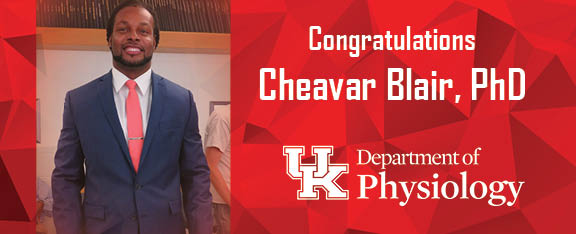
On October 3, 2017, Cheavar Blair successfully earned his Doctoral Degree. By doing so, he has become the first African-American male in the history of the Department of Physiology to be awarded a PhD. Congratulations Dr. Blair!
THE MECHANICAL PROPERTIES OF NON-FAILING AND FAILING HUMAN MYOCARDIUM
Doctoral Committee Members
Dr. Ken Campbell
Department of Physiology
Dr. John McCarthy
Department of Physiology
Dr. Tim McClintock
Department of Physiology
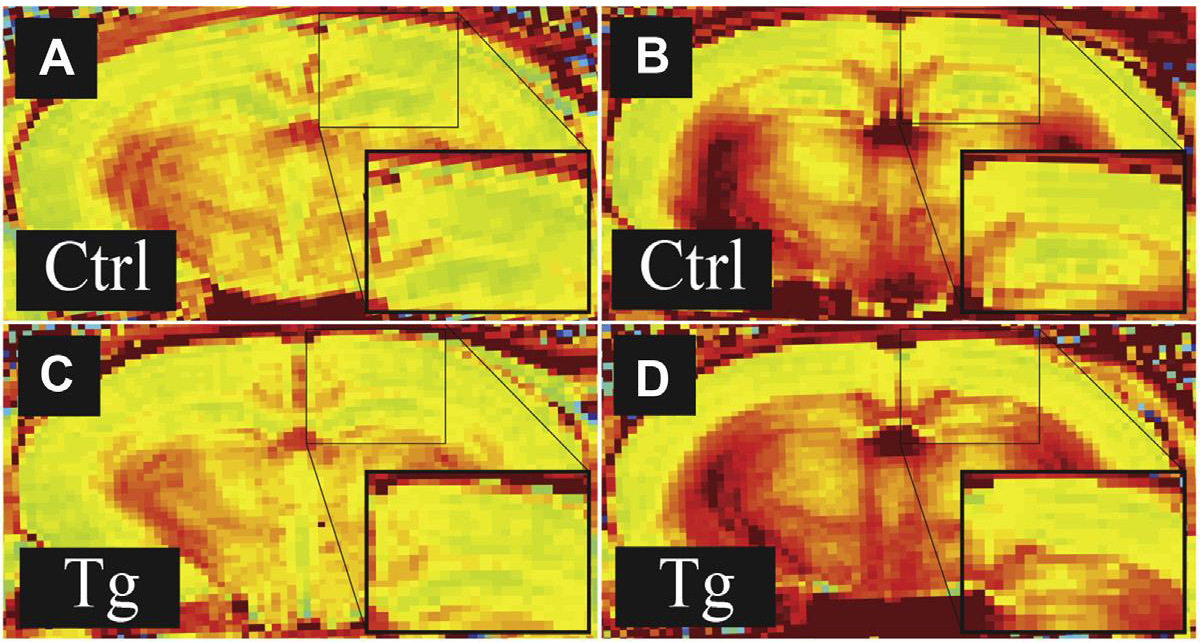
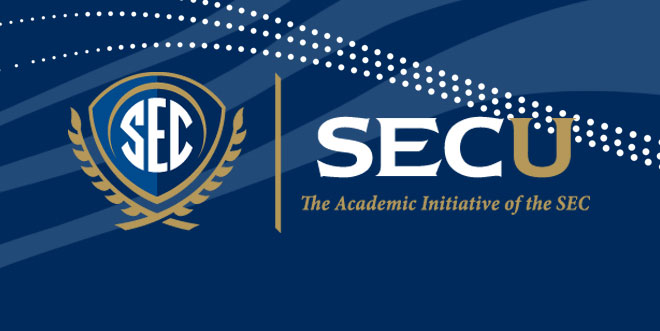
Click here to view the original article on UKNOW


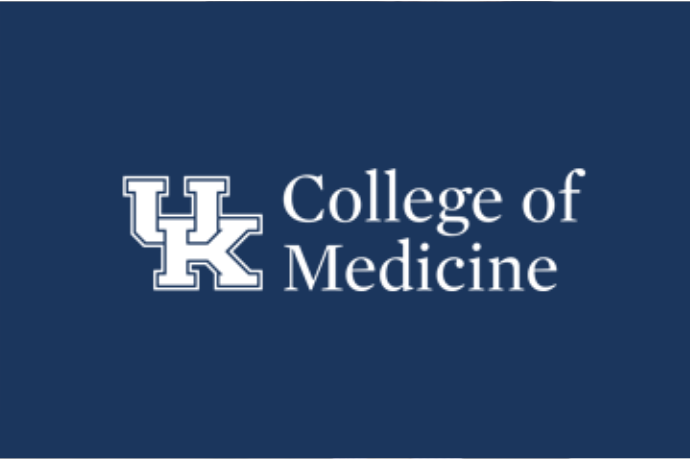
THE CENTER FOR BIOMEDICAL RESEARCH EXCELLENCE ON OBESITY AND CARDIOVASCULAR DISEASES (COCVD)
FUNDING OPPORTUNITY
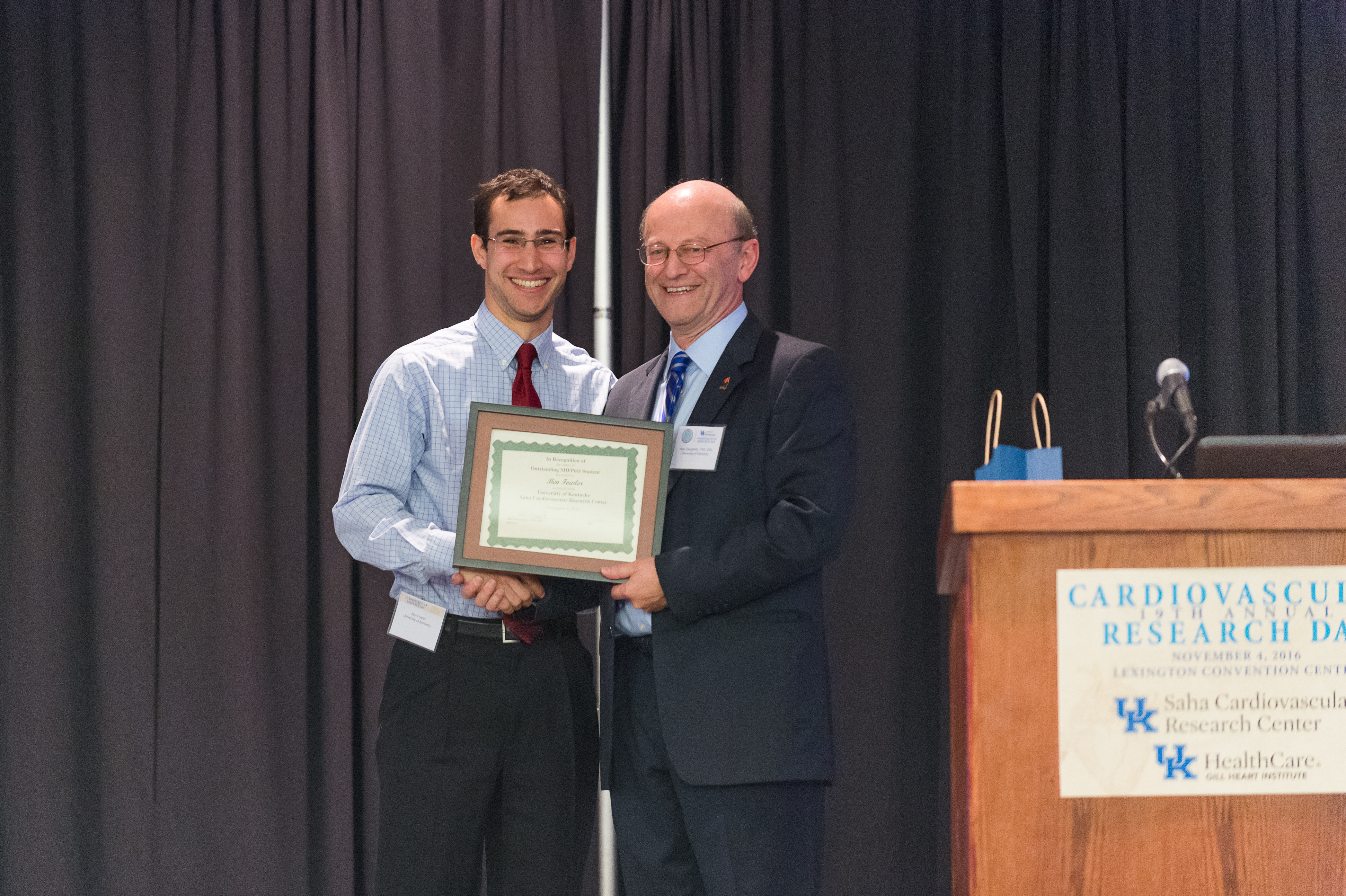
The Saha Cardiovascular Research Center is now accepting applications for the 2017 Saha Awards.
The application process will close on Friday, September 15, 2017.
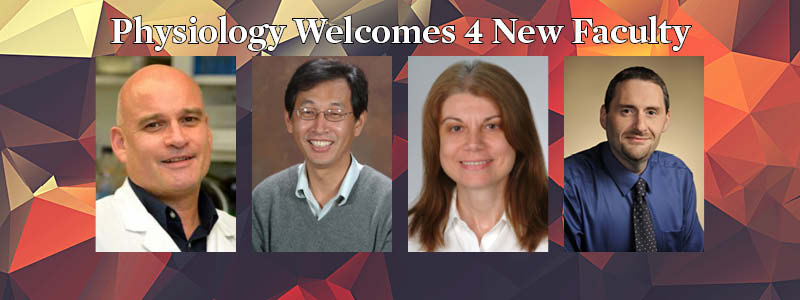
The Department of Physiology welcomes our newest faculty!
Erhard Bieberich, PhD
Professor
(previously Augusta University)
Guanghu Wang, PhD
Assistant Professor
(previously Augusta University)
Stefanka Spassieva, PhD
Assistant Professor
(previously Texas A&M)

Bailey, A. M., S. J. Legan, V. J. Meretsky, and G. E. Demas. "Effects of Exogenous Leptin on Seasonal Reproductive Responses to Interacting Environmental Cues in Female Siberian Hamsters." Gen Comp Endocrinol 250 (Sep 01 2017): 95-103. http://dx.doi.org/10.1016/j.ygcen.2017.06.004.
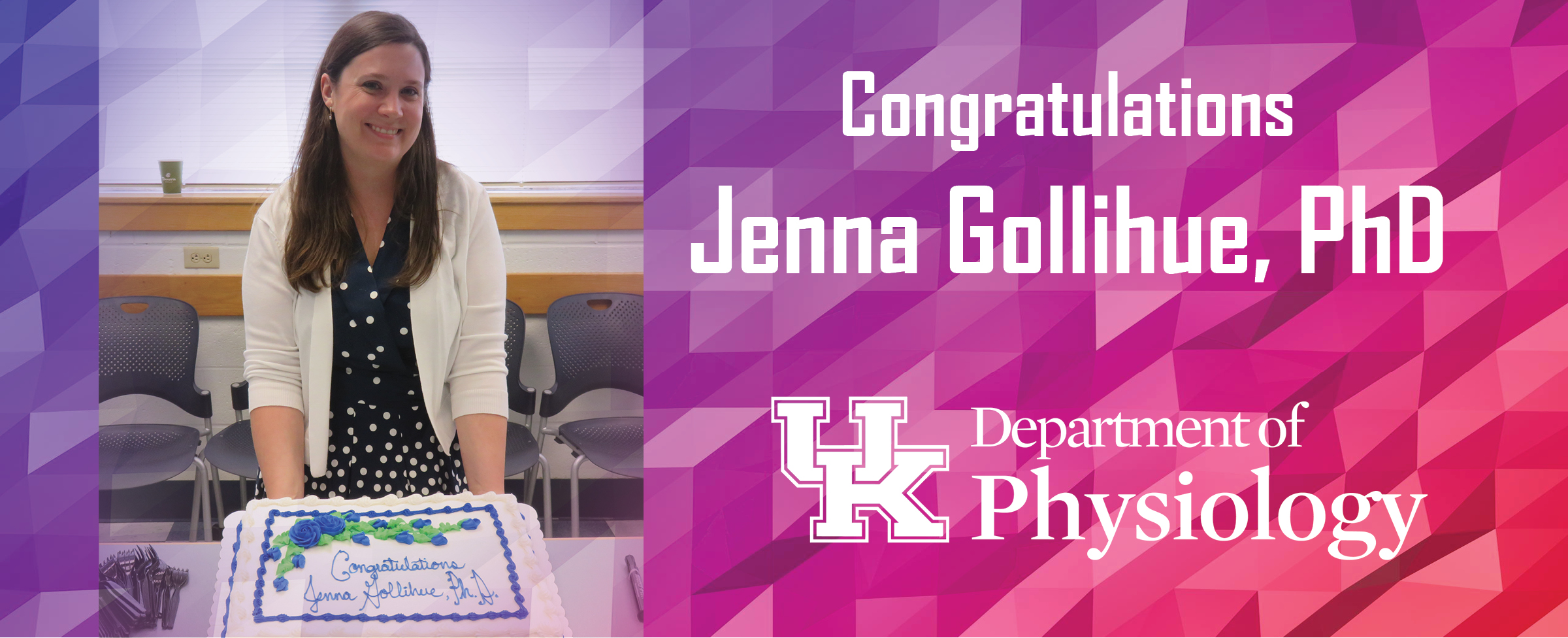
On Friday, June 16th, 2017 Jenna Gollihue, mentored by Dr. Sasha Rabchevsky, successfully defended her dissertation and earned her PhD.

Activity-Dependent Gene Expression in the Mammalian Olfactory Epithelium.
Wang Q1, Titlow WB1, McClintock DA1, Stromberg AJ2, McClintock TS1.
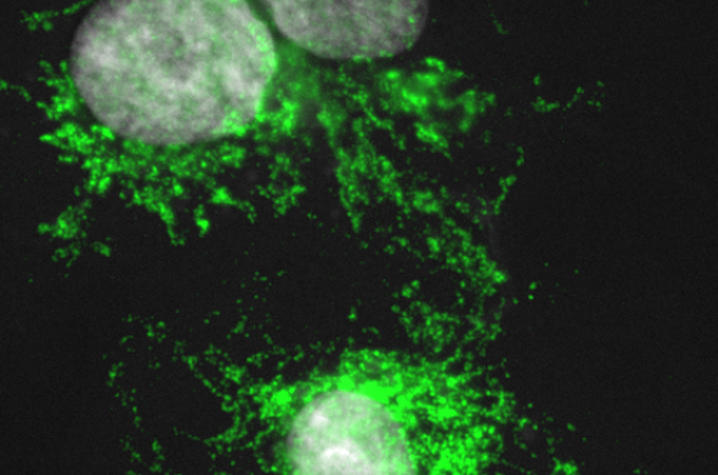
View the original article on UKnow here

Even when it’s your job, it’s not easy to ask people about substance use. Kalea Benner’s current research is based on this fact.
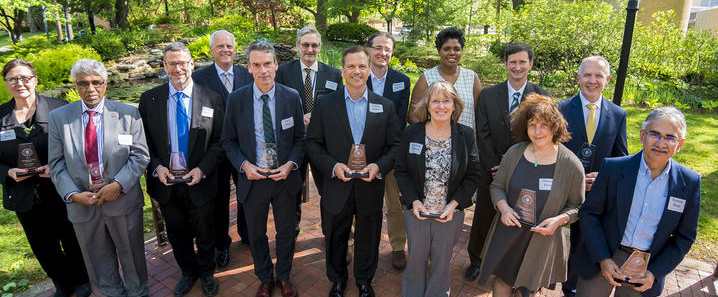
The Department of Physiology would like to congratulate Dr. Brad Taylor on his achievement.
Click here for the full article on UKnow
LEXINGTON, Ky. (May 2, 2017) — The University of Kentucky Board of Trustees today approved 16 University Research Professorships for the 2017-18 year.
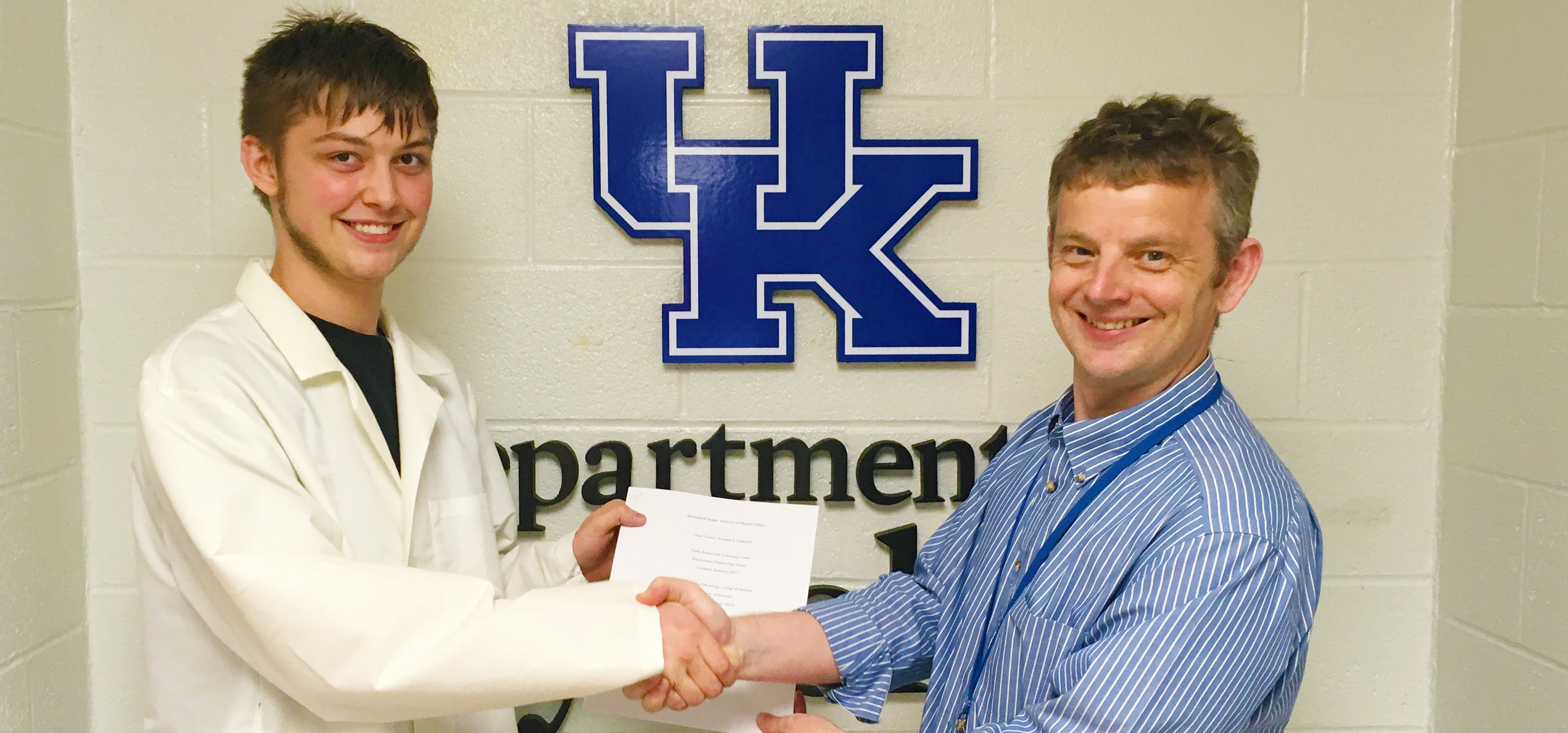
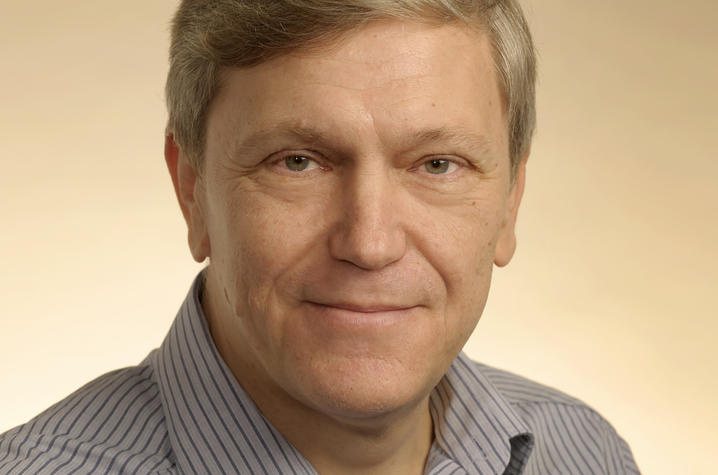
Mechanosensory hair cells in the inner ear pick up the softest sounds, such as whispers and distant noises.
Unlike other cells in the human body, these sensory cells are fragile and finite. At birth, the human ear contains approximately 15,000 of these cells. They do not regenerate or divide and, therefore are susceptible to permanent damage from exposure to loud sounds. Scientists believe understanding the molecular mechanisms that maintain the structure of these cells throughout the lifespan can provide insight into the fundamental causes of hearing loss and deafness.
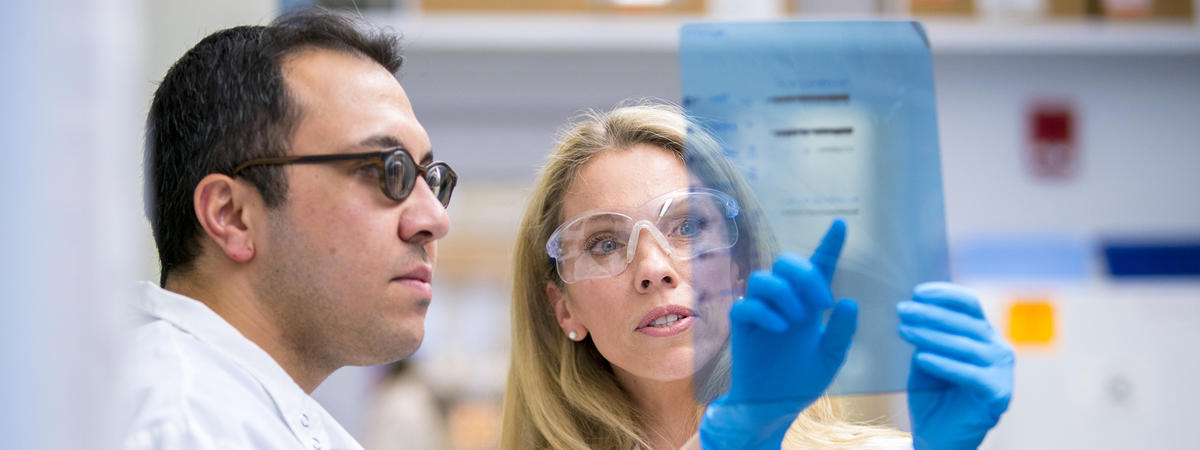
The University of Kentucky was recently awarded a prestigious Centers of Biomedical Research Excellence (COBRE) grant to study the metabolism of cancer from the National Institutes of General Medical Sciences, part of the National Institutes of Health. The $11.2 million grant will fund UK's Center for Cancer and Metabolism over the next five years.
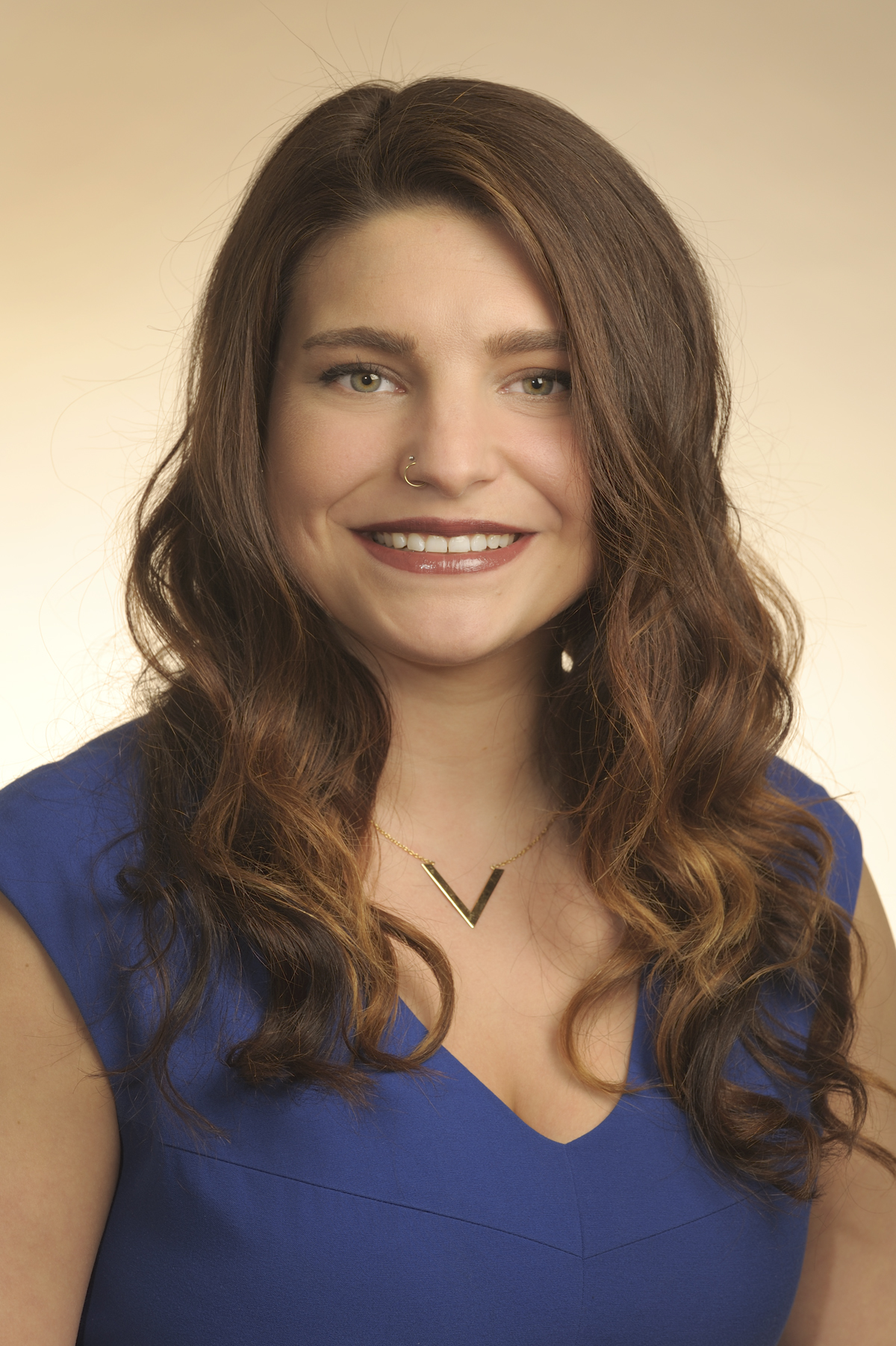
Tori Stromp, PhD, a recent graduate of the Department of Physiology and a member of the Saha Cardiovascular Research Center, recently received the prestigious Summa Cum Laude Award at the International Society of Magnetic Resonance in Medicine Conference. The award is presented to less than 1% of the abstracts submitted to the conference and is rarely awarded to graduate students. Tori will present her work at the annual conference April 22-27, 2017 in Honolulu, HI.
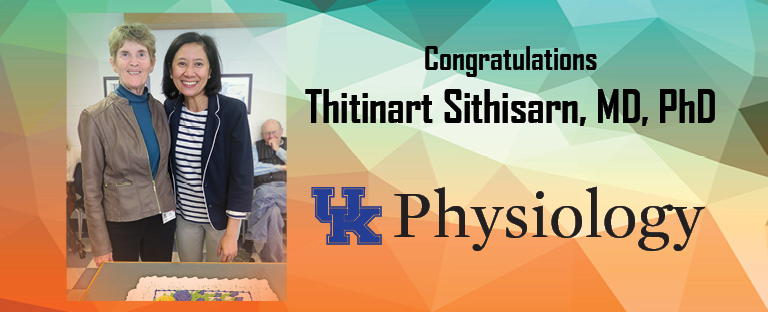
On Friday, March 31, 2017 Thitinart Sithisarn, MD successfully defended her dissertation and earned her PhD. Dr. Sithisarn completed her research while simultaneously holding a faculty position in Pediatrics.
Dissertation Committee
Dr. Sandra Legan
Department of Physiology, Mentor
Dr. Ok-Kyong Park-Sarge
Department of Physiology
Dr. Melinda Wilson
Department of Physiology
Dr. Susan Barron
Department of Psychology

Congratulations to Laura Peterson of McCarthy Lab!
Laura has been awarded a 5 year NSF Graduate Research Fellowship.
Click here to learn more about the National Science Foundation Graduate Research Fellowship Program